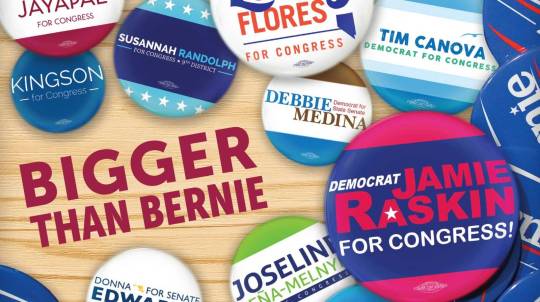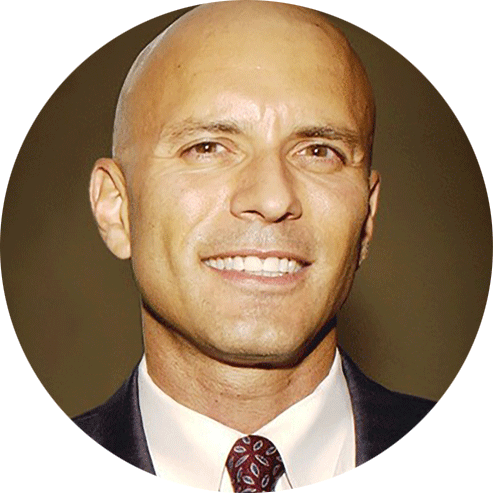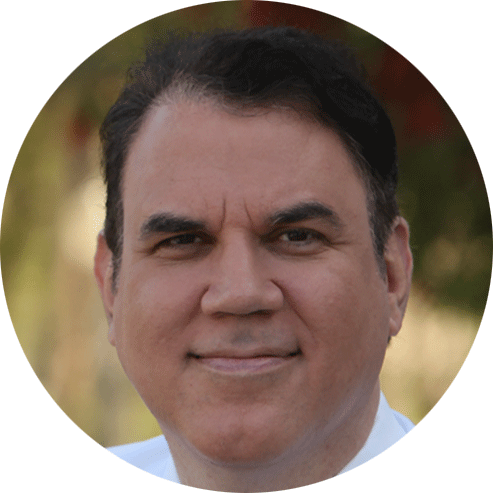#MaggieToulouseOliver
Explore tagged Tumblr posts
Text
Bigger Than Bernie: The Other Progressive Challengers Taking On the Democratic Establishment (via Christopher Hass)

Our Progressive Candidates
Our endorsed candidates are running for office representing progressive values. Fighting for progressive ideas, for the Green New Deal, Medicare for All, free college, ending mass incarceration and deportation. It’s time to empower the voice of a new generation of Progressives who represent the people. A new generation of Progressives who will fight for solutions that match the need of the many.
PRESIDENTIAL CANDIDATE

BERNIE SANDERS OFFICIAL ENDORSEMENTS
UNITED STATES SENATE

Maggie Toulouse Oliver U.S. SENATE – NEW MEXICO
OFFICIAL ENDORSEMENTS
UNITED STATES HOUSE OF REPRESENTATIVES

Rashida Tlaib U.S. HOUSE – MICHIGAN (MI-13)
ALEXANDRIA OCASIO-CORTEZ U.S. HOUSE – NEW YORK (NY-14)
PRAMILA JAYAPAL, U.S. HOUSE – WASHINGTON (WA-07)
ILHAN OMAR U.S. HOUSE – MINNESOTA (MN-05)
RO KHANNA U.S. HOUSE – CALIFORNIA (CA-17)
Joaquin Vazquez U.S. HOUSE – California (CA-53)
Marie Newman U.S. HOUSE – ILLINOIS (IL-03)
OFFICIAL ENDORSEMENTS
UNITED STATES LOCAL GOVERNMENT

CANDIDATES CLICK HERE Can not find your progressive candidate?
Year 2020 – Recognize a Progressive – Nominate a Candidate:
The Other Progressive Challengers Taking On the Democratic Establishment
By Christopher Hass “Today,” Bernie Sanders booms in his monotone shout, “we begin a political revolution to transform our country—economically, politically, socially and environmentally.” He marks each beat with his right hand, as if conducting with an invisible baton. Behind him, a lone seagull flaps its wings as it flies across Lake Champlain. The crowd of 5,000 that has come to Burlington, Vt., on a sunny afternoon in May to witness Sanders’ official campaign announcement breaks into a cheer. At the time, it was easy to dismiss talk of revolution as the rallying cry of a 74-year-old democratic socialist who clings too dearly to memories of the 1960s. Eleven months and more than six million votes later, Sanders’ call for revolution is harder to ignore. But what, exactly, would this political revolution look like? It’s not hard to imagine Sanders marching in the streets with the masses—he’s walked plenty of picket lines, most recently alongside Verizon workers in New York City last October—but that’s not the revolution he’s calling for. For Sanders, political revolution means shifting control of American politics away from corporate interests, convincing non-voters to go to the polls and attracting white working-class voters back to the Democratic Party, all while moving the party left enough to embrace democratic socialist policies. A political revolution of that kind is going to require two things: a wave of candidates committed to a bold set of progressive ideas and a mass of voters with the political will to elect them. There’s evidence both of these are already here.

Progressives are fired up here for a victory against big money. —Jamie Raskin read the full interview In These Times spoke to U.S. House and Senate challengers across the country who are very much a part of this wave. They are all outsiders to varying degrees, and all of them are running against the Democratic establishment in its various forms—from corporate donors and super PACs to the head of the Democratic National Committee herself. These challengers range from first-time candidates to experienced lawmakers, from community organizers to law professors. Each is balancing the individual concerns of the voters they seek to represent alongside the larger mood of the nation. None of them is running because of Bernie Sanders, but they clearly benefit from the enthusiasm and sense of progressive possibility his campaign has created. It would be a mistake to call them “Sanders Democrats” (and it’s unlikely Sanders himself would want anything to do with the term). Some have endorsed Sanders, others remain neutral or even back Hillary Clinton. But they are coalescing around a set of progressive policies familiar to anyone who has heard Sanders speak, including single-payer healthcare, free college tuition, a $15 minimum wage and breaking up the big banks. It’s hard to imagine a Democratic platform more at odds with Bill Clinton’s centrist Third Way of the 1990s. More importantly, these positions increasingly reflect the popular will. Even after the brutal battles over Obamacare, polls show that more than half of Americans support moving to a single-payer healthcare system. Fifty-eight percent want to break up the big banks. Sixty-three percent support raising the minimum wage to $15. And Americans are nearly united in agreement (78 percent) that Citizens United should be overturned. What’s striking about recent polling, though, is not the support for these progressive policies (many have enjoyed widespread approval for a while), but the openness to new, radical ideas—especially among young voters. In a January YouGov poll, people under 30 rated socialism more favorably than capitalism. On the eve of the Iowa caucus, when asked how they describe themselves, 43 percent of Democratic caucusgoers chose “socialist.” Take a moment to let that sink in. This is what happens when you have a generation of young people whose central experiences with capitalism have been two recessions, a financial crisis, crushing college debt, flat wages and soaring income inequality. For young people, the devil they don’t know is looking better and better than the devil they do—and that sentiment is fueling insurgent challengers. Many of these candidates continually emphasize the need to purge U.S. politics of corporate money, starting with the Democratic Party. “It’s easy for candidates to say they’re for overturning Citizens United, but it’s really meaningless when they’re also taking so much corporate and dark money that they’ll never follow through,” says Tim Canova, who is running for Congress in Florida’s 23rd congressional district. “The Democratic Party has lost its way. It has gone corporate and Wall Street on so many issues that it has unfortunately turned its back on its own grassroots base.” And it’s more than a matter of principle: Many of these candidates believe that voters are fed up with how the corporate capture of the party has pulled it to the right. “The Democratic Party has been Lucy with the football and the voters have been Charlie Brown,” says Tom Fiegen, a candidate for Senate in Iowa. “Democrats have pulled the football away too many times, so the voters say, ‘Nope, I am not going to be tricked again. I am not going to have you lie to me and tell me you’re on my side, and then when I send you to D.C., you vote for the TPP or you vote for the Keystone Pipeline.’ ” Nowhere is this trust gap felt more keenly than among young voters. Sanders has won the support of young people like few politicians before. In each of the 27 states that held primaries or caucuses in February or March, he won the youth vote, often by more than 50 points. In his home state of Vermont, he defeated Hillary Clinton among voters under 29 by an overwhelming 95 percent to 5 percent. Tom Fiegen saw how this played out in Iowa. “In the conventions I went to,” he says, “there was probably 30 to 40 years difference in age between Bernie supporters in one half of the room and Hillary supporters in the other half of the room.” Fiegen himself has endorsed Sanders, and you can hear in his voice the same passion that has animated so many young people: “We are idealists. … We want a better world. We think we can achieve it. We’re willing to basically throw our bodies in front of the bus to do that.”

The number one lesson that everyone can learn from Bernie Sanders, and that I’ve tried to emulate, is: Tell the truth. —Tom Fiegen The challengers:

Tim Canova (FL)

Donna Edwards (MD)

Tom Fiegen (IA)

Lucy Flores (NV)

Alan Grayson (FL)

Eric Kingson (NY)

Pramila Jayapal (WA)

Susannah Randolph (FL)

Joseline Peña-Melnyk (MD)

Jamie Raskin (MD) It would be a mistake to overlook the fact that this year’s election is playing out in a moment when protest movements have interjected themselves into the national conversation in a way we haven’t seen in a long time. Black Lives Matter, Fight for 15, the climate movement and more have demonstrated the value of setting uncompromising demands and pushing the boundaries of what is politically possible. It’s no surprise then that some of these progressive challengers come directly out of protest movements. Pramila Jayapal, a Washington state senator running for the 7th District seat in the U.S. House of Representatives, has a long history of activism and advocacy in Seattle. She founded the post-9/11 immigrant rights group Hate Free Zone (now OneAmerica), which has held massive voter registration drives. “The only reason I got into politics was because I believed it was another platform for organizing,” she says, “and that’s what I want to do with my congressional campaign. We’ve brought in thousands of leaders, young people and people of color and women who never saw themselves as part of democracy.” Joseline Peña-Melnyk, who is running for Congress in Maryland’s 4th District, says: “These movements give me hope for the future of our democracy. They show that the spirit that gave rise to the civil rights movement is still alive as people take up causes that matter and challenge the status quo.” Donna Edwards, a co-founder of the National Network to End Domestic Violence now running for Maryland’s open Senate seat, agrees. “I’ve always believed in outside movements,” she says. “Government doesn’t move effectively and elected officials don’t move effectively unless they have a big push from the outside.” Candidates like Debbie Medina, a democratic socialist running for state Senate in New York’s 18th District, are happy to be that push. As she told The Nation, “This election is just another rent strike.” Sanders himself is arguably the biggest protest candidate of them all. But a funny thing is happening: Many of the protest candidates are winning. By the middle of April, Sanders had won 16 states, as well as the Democrats abroad primary. Donna Edwards has led by as much as 6 points. Polls show Lucy Flores, a Sanders supporter running for Congress in Nevada, leading by 20 points. In Maryland’s 8th congressional district, Jamie Raskin’s two closest opponents are busy arguing over who’s in second place. For any new president to enact a progressive agenda, they’re going to need a new Congress. The establishment, however, is not going quietly. In Florida, where Tim Canova is challenging Democratic National Committee Chair Debbie Wasserman Schultz for her congressional seat, news got out in March that the Florida Democratic Party (FDP) had denied Canova’s campaign access to the party’s voter file. His supporters created an uproar; the file is crucial to any campaign’s get-out-the-vote efforts. The FDP eventually backed down in order to avoid, in the words of the state party executive director, the “appearance of favoritism,” but the policy remains in place for all other Democratic primary challengers in Florida. And not just Florida—Democratic challengers in other states are routinely denied access to this data or charged extra for it. “The DNC and state Democratic parties must stop favoring incumbents over insurgents in Democratic primaries,” Canova says. “We need to recruit activists committed to our progressive agenda to run for office, and that includes challenging incumbent Democrats.” Given that these candidates want to rid the party of corporate influence, it’s no surprise that many are going head-to-head with big money. In Maryland, Jamie Raskin’s two biggest challengers in the Democratic primary are a wine mogul named David Trone, who has already spent more than $5 million of his fortune on the race, and Kathleen Matthews, who once oversaw the Marriott political action committee and is now herself the recipient of more lobbyist money than any Democrat running for the House in 2016. “My major opponents here have no real history of involvement in Democratic Party politics,” Raskin says. “They are creatures of the big money politics that have overtaken our country.” He’s won the endorsement of both liberal groups and a number of Democratic state lawmakers, and—borrowing a page from Sanders’ playbook—has relied on a surge of small-dollar donations to remain competitive. “Progressives are fired up here for a victory against big money,” Raskin says. In Nevada, Lucy Flores faces a multi-millionaire, Susie Lee, who has loaned her own campaign $150,000. But as Jeb Bush will tell you, money alone only gets you so far, especially in a year when voters seem more interested in authenticity. “The number one lesson that everyone can learn from Bernie Sanders,” Tom Fiegen says, “and that I’ve tried to emulate is: Tell the truth.” Donna Edwards put it this way: “We should not run away from who we are as Democrats and the values that we share. … We lose elections because our voters stay home.” For a President Sanders or a President Clinton to be successful, they’re going to need voters to come out not just in November, but in 2018, 2020, and beyond. For any president to enact a progressive agenda, they’re going to need a new Congress, made up of people like Donna Edwards, Jamie Raskin, Pramila Jayapal and others. When Barack Obama first ran for president, he spoke frequently about how his election was not about him, but us. He may have meant it, but it was hard to shake the feeling that at that moment in American history, it was in fact very much about him and the qualities he possessed. Today, when Sanders uses the same language, you believe him—if for no other reason than it’s hard to imagine a wild-haired septuagenarian in a baggy suit as the catalyst for a popular movement. Clearly, something deeper is going on. For the most part, Sanders himself has remained focused on his own election fight with Hillary Clinton. He has avoided talk of the future. But in a recent interview with Cenk Uygur of the “Young Turks,” Sanders let his guard down for a minute, saying, “We need, win or lose for me, a political revolution which starts electing people who are accountable to the working families of this country.” There it was—“electing people,” plural, not a single president. That’s what revolution looks like. These challengers are also carrying the flag of the political revolution sparked by Bernie Sanders. This Piece Originally Appeared in Christopher Hass Read the full article
#AlanGrayson#AlexandriaOcasio-Cortez#BernieSanders#democraticestablishment#DonnaEdwards#EricKingson#IlhanOmar#JamieRaskin#JoaquinVazquez#JoselinePeña-Melnyk#LucyFlores#MaggieToulouseOliver#MarieNewman#ourcandidates#PramilaJayapal#progressivecandidates#progressivecandidates2020#ProgressiveChallengers#RashidaTlaib#RoKhanna#SusannahRandolph#TimCanova#TomFiegen
2 notes
·
View notes
Text
Democrats Have an Open Senate Seat in New Mexico

IN 2018, Democrats were able to not only take back the House but also bring in a wave of outspoken progressives by taking full advantage of safely blue seats. Those new freshmen representatives have helped reshape the political conversation in Washington. Until now, the mobilization has been largely House-specific, but an open Senate seat from New Mexico has given the left a new opportunity.
Nominate a candidate
The party establishment has already unified behind Ben Ray Luján, a New Mexico congressman, to fill the seat being vacated by Democratic Sen. Tom Udall, who is retiring. Luján — who is assistant House speaker, a close ally of Speaker Nancy Pelosi, and the chair of the Democratic Congressional Campaign Committee last cycle — was quickly endorsed by Pelosi after announcing his bid in April. In an unusual move, the Democratic Senatorial Campaign Committee, rather than letting the primary play out, endorsed him as well. As the chair of the DCCC, Luján oversaw the party’s effort to beat back progressive challengers in open primaries across the country. Now, he faces such a challenge himself. On August 13, the Working Families Party, which has become an increasingly potent player in the state’s politics, joined Action PAC (a project affiliated with The Intercept columnist Shaun King) and Blue America in endorsing Maggie Toulouse Oliver. Oliver, a 43-year-old single mom whose children were on Medicaid when they were younger, began her career with the League of Conservation Voters and was elected secretary of state in 2014. An outspoken progressive, she backs a Green New Deal, Medicare for All, wants to abolish the Immigration and Customs Enforcement agency; as secretary of state, she enacted automatic voter registration and same-day registration. The New Mexico race is the first serious attempt in 2020 by progressives to take the 2018 House primary playbook and port it over to a Senate campaign. The Lujáns, on the other hand, are a political dynasty in New Mexico and arrived in the region as Spanish colonial settlers long before it was part of the United States. Ben Ray’s father, Ben Luján, was speaker of the New Mexico House. Michelle Luján Grisham serves as the state’s governor, and her uncle, Manuel Luján Jr., was a Republican who served in the U.S. House and as George H.W. Bush’s interior secretary. Eugene Luján was chief justice of the New Mexico Supreme Court. The New Mexico race is the first serious attempt in 2020 by progressives to take the 2018 House primary playbook and port it over to a Senate campaign. For the DSCC to so quickly get behind Luján reflects a less secure party power structure, one that feels under siege in Washington from a rising progressive wing. At a meeting on August 14 of major progressive groups in the state, Eric Griego of New Mexico WFP pushed for the movement to unify around Oliver, he said, but the groups — representing unions, the environment, and reproductive rights — were worried about taking on Luján and are so far staying out. “They’re looking at the bare-knuckle politics,” he told The Intercept. “Their heart is with Maggie, and everybody is scared shitless to get in the race.”

New Mexico Secretary of State Maggie Toulouse Oliver exits a courthouse in Santa Fe, N.M., on Sept. 12, 2018. Photo: Morgan Lee/AP THERE’S AN ASYMMETRY in how the parties approach primaries in relatively uncompetitive states. Republicans tend to fill open red Senate seats with true believers and ultraconservatives, as the party’s business wing and its activist base are largely aligned on major ideological questions. In the Democratic Party, the corporate donor base and party activists are at odds, with the former typically out-muscling the latter, which tilts the balance of power toward moderates in the Senate Democratic caucus. Establishment Democrats often argue that they would prefer to elect more progressive candidates, but the demands of pragmatism, and the tilt of the electorate, require them to support centrist candidates with corporate backing. A 2018 academic study, however, cast significant doubt on that claim, offering evidence that those party leaders prefer centrist candidates but mask that preference in the language of pragmatism. The tendencies on either side have had drastic implications, as Senate Republicans have moved to reshape the Senate into a vehicle for minority dominance, and Senate Democrats have largely attempted to hew to Senate norms. It took former Senate Majority Leader Harry Reid some five years to do modest filibuster reform, as he worked to overcome objections from inside his caucus to changing Senate rules. At the first hint of opposition to Supreme Court nominee Neil Gorsuch, Senate Majority Leader Mitch McConnell quickly ended the filibuster for Supreme Court nominees. One obstacle for progressives in blue states is that they often have to run, in primaries, against candidates who aren’t obviously objectionable to Democratic voters — and have major backing from high-dollar donors. That combination is difficult to beat. Leading into the primary election between former New York Rep. Joe Crowley and Alexandria Ocasio-Cortez, for instance, there was no upsurge in local or national opinion that there was something terribly wrong with Crowley. Sure, he was heavily backed by corporate donors, but he largely voted the right way on the House floor. Only in victory has Ocasio-Cortez been able to demonstrate the genuine difference between the two to a national audience. “There’s nothing wrong with Ben Ray Luján, but there’s something right about electing the first woman and a strong progressive from the blue state of New Mexico.” Oliver faces the same challenge in New Mexico. “It’s not easy because he’s not somebody that people dislike. He’s not the enemy, but he’s not the best possible option,” said Heather Brewer, Oliver’s campaign manager. “There’s nothing wrong with Ben Ray Luján, but there’s something right about electing the first woman and a strong progressive from the blue state of New Mexico.” And Luján has become even less wrong since running for Senate. After chairing the DCCC for two cycles and raising extraordinary sums of corporate money, he quickly raised some $200,000 of corporate PAC money for his Senate campaign. Yet after Oliver swore off corporate PAC money, Luján made the pledge too (though he has declined to return what he has already taken). Lujan also signed on to the Green New Deal, introduced by Ocasio-Cortez in February, after launching his campaign. Though he supported former Rep. John Conyers’s Medicare for All legislation once since he entered office in 2009, in June, he finally co-sponsored the one written by Rep. Pramila Jayapal, D-Wash., which earned him Jayapal’s endorsement. Still, he hasn’t moved left on everything. Though Luján is the highest-ranking Hispanic lawmaker in Congress, and has condemned Trump’s policy of separating families and caging children, he has not aimed his fire squarely at ICE. Oliver is more outspoken on the question and has called for Immigration and Customs Enforcement to be abolished, with its responsibilities distributed to other agencies that do not act as rogue secret police forces. And while Oliver has been calling for the impeachment of Donald Trump, Luján has hewed to the Pelosi line that it’s premature to move forward. “On the books, he’s got a decent record; he’s not bad, we could do worse,” Griego said. “He’s a consummate inside player, and a really loyal soldier to Pelosi.”

Then-House Minority Leader Nancy Pelosi and Rep. Ben Ray Luján, then chair of the Democratic Congressional Campaign Committee, at a midterm election night party hosted by the DCCC in Washington, D.C., on Nov. 7, 2018. Photo: Brendan Smialowski/AFP/Getty Images NEW MEXICO HAS become increasingly progressive in recent years and, as the GOP has faded as a political force, leftist activists have focused their energy on corporate Democrats. The biggest win so far came in 2018 against Debbie Rodella, a powerful state lawmaker who was a one-woman obstacle to progress. WFP recruited and backed an insurgent challenger, Susan Herrera, who stunned the state by ousting her in a state House primary. WFP and other progressive allies are again focused on a handful of corporate-backed Democrats at the state level in 2020, even as the groups aren’t united behind Oliver. The race for Oliver could come down to whether she can win the backing of reproductive rights groups and win heavily among women, who not only lean Democratic but tend to be more active on behalf of candidates than men. Getting the backing of EMILY’s List is critical; the organization’s brand is so strong with female donors that if a candidate doesn’t have that endorsement, it’s hard for them to raise money. Call back when you have their endorsement, multiple candidates have been told repeatedly during their own runs. EMILY’s List endorsed Oliver’s run for secretary of state, but backing her against Luján would require the group to challenge the Democratic power structure, of which EMILY’s List is a part. Still, EMILY’s List staying out of the race would also be politically difficult. Only 56 women have served in the Senate in the entire history of the upper chamber, with just 25 serving today. And Luján, as chair of the DCCC, angered pro-choice groups by arguing that opposition to reproductive rights should not be a litmus test for candidates (but quickly backtracked under fire). The longer it takes for Oliver to win the backing, the harder it becomes to raise the kind of money she’ll need to compete against Luján. (EMILY stands for “Early Money Is Like Yeast.”) Luján has raised more than $1.6 million so far to Oliver’s roughly $200,000, a disparity that was flagged by the progressive groups this week in their argument for why they should stay neutral. Brewer said she was hopeful the campaign would earn the support of EMILY’s List. “I would assume given they’re a strong organization that supports pro-choice women, that that is their only consideration in how they make decisions,” she said. “I couldn’t speak to how Washington insiders might be trying to manipulate that.” And, Brewer argued, New Mexico races are relatively inexpensive; Oliver will be able to get her message out statewide for just a few million dollars, which Brewer was confident they could comfortably raise. Ben Ray, a coincidentally named spokesperson for EMILY’s List, said that no decision had been made. “Our endorsements are a rolling process,” he said. “We are always happy to see strong women leaders like Maggie get in races like this.” (Rolling is one way to describe it; while outside activists often perceive EMILY’s List as dragging its feet, its endorsement process is cumbersome and laborious, involving a choice council that is difficult to convene at one time.) Oliver, meanwhile, is also hoping to lock down national progressive endorsements from groups like Justice Democrats, MoveOn, the Progressive Change Campaign Committee, Democracy for America, the local Indivisible, and more. That could make up for the lack of support from other mainline progressive groups afraid to take on the party establishment. This Piece Originally Appeared in The Intercept Read the full article
0 notes